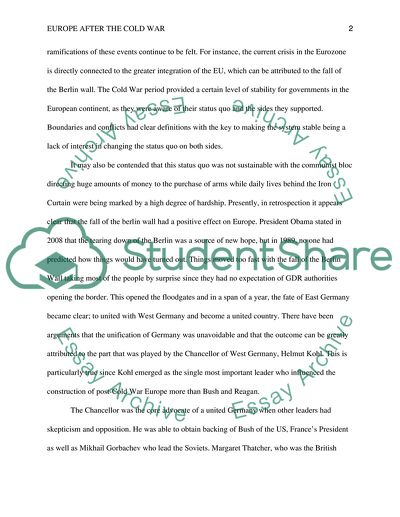Cite this document
(“Europe after the Cold War Essay Example | Topics and Well Written Essays - 1000 words”, n.d.)
Europe after the Cold War Essay Example | Topics and Well Written Essays - 1000 words. Retrieved from https://studentshare.org/history/1686314-did-europe-become-a-safer-place-when-the-cold-war-ended
Europe after the Cold War Essay Example | Topics and Well Written Essays - 1000 words. Retrieved from https://studentshare.org/history/1686314-did-europe-become-a-safer-place-when-the-cold-war-ended
(Europe After the Cold War Essay Example | Topics and Well Written Essays - 1000 Words)
Europe After the Cold War Essay Example | Topics and Well Written Essays - 1000 Words. https://studentshare.org/history/1686314-did-europe-become-a-safer-place-when-the-cold-war-ended.
Europe After the Cold War Essay Example | Topics and Well Written Essays - 1000 Words. https://studentshare.org/history/1686314-did-europe-become-a-safer-place-when-the-cold-war-ended.
“Europe After the Cold War Essay Example | Topics and Well Written Essays - 1000 Words”, n.d. https://studentshare.org/history/1686314-did-europe-become-a-safer-place-when-the-cold-war-ended.


